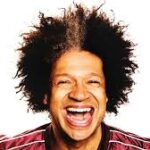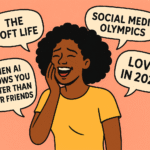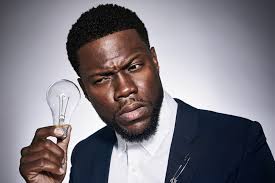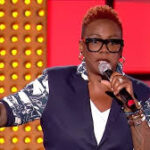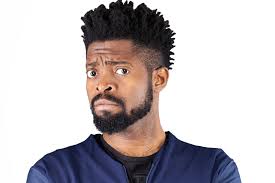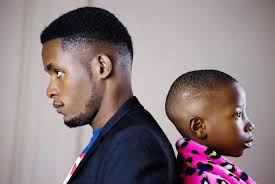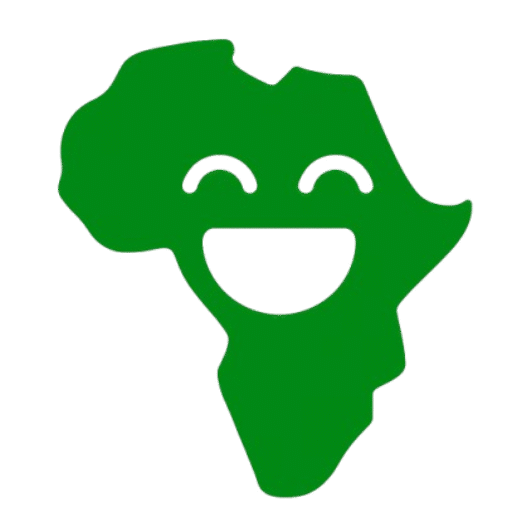Comedy has always been more than just a source of entertainment. It’s a mirror reflecting society, culture, and human behavior — sometimes raw, sometimes exaggerated, but always revealing. When it comes to Black Comedy and Afro Comedy, the laughter hits differently. Both styles carry deep cultural roots, social commentary, and distinctive storytelling, but they’re not the same thing.
- 1. Understanding Black Comedy: Humor Born from Pain and Perspective
- 2. Understanding Afro Comedy: The Heartbeat of African Humor
- 3. Cultural Roots and Context: The Core Difference
- 4. Style and Delivery: Satire vs. Relatability
- 5. Language and Identity: The Power of Local Expression
- 6. Representation in Media and Online Platforms
- 7. Global Appeal: From Local Laughs to Global Stages
- 8. The Deeper Message: Laughter as a Form of Power
- 9. SEO Insights: Why People Search for “Afro Comedy” and “Black Comedy”
- 10. Conclusion: One Soul, Two Expressions
While Black Comedy has evolved primarily from African American and Black diaspora experiences around the world, Afro Comedy reflects the authentic humor, culture, and daily realities of Africa and its people. Both are funny — but in uniquely different ways that tell powerful stories about identity, struggle, and triumph.
Let’s dive into what makes them similar, what sets them apart, and why both deserve recognition as powerful forces in global entertainment.
1. Understanding Black Comedy: Humor Born from Pain and Perspective
Black Comedy — sometimes referred to as Dark Humor or African-American Comedy depending on context — has its roots in the African diaspora, especially in the United States, the Caribbean, and the United Kingdom.
It emerged as a response to centuries of oppression, racism, and inequality. For many Black comedians in America, humor became a tool for survival — a way to speak truth to power and make sense of pain. Early pioneers like Dick Gregory, Redd Foxx, and Richard Pryor turned racial trauma and social injustice into laughter, not to mock suffering, but to reclaim power over it.
Key traits of Black Comedy include:
- Satirical storytelling that exposes racial and social hypocrisy.
- Political commentary disguised in jokes.
- Use of irony and sarcasm to highlight injustice.
- Cultural self-awareness, often poking fun at both Black and White communities.
Comedians like Dave Chappelle, Chris Rock, and Eddie Murphy took this tradition global. Their style mixes deep reflection with unapologetic truth-telling — making audiences laugh while confronting uncomfortable realities.
For instance, when Chris Rock jokes about racial inequality in America or Dave Chappelle explores police brutality through comedy, they’re not just being funny. They’re using Black Comedy as social activism — entertainment with a message.
2. Understanding Afro Comedy: The Heartbeat of African Humor
While Black Comedy was shaped by the diaspora’s struggle for identity in Western societies, Afro Comedy was born right in the heart of Africa — out of cultural diversity, social structures, and day-to-day living.
Afro Comedy draws inspiration from African traditions, proverbs, street life, local politics, music, religion, and community behavior. It’s the humor that connects deeply with African realities, making it relatable to millions across the continent.
If Black Comedy is built on irony and defiance, Afro Comedy thrives on relatability and exaggeration. It often portrays the typical African family, nosy neighbors, corrupt politicians, and the endless hustle that defines urban African life.
Popular traits of Afro Comedy include:
- Cultural humor rooted in African traditions and values.
- Multilingual punchlines, mixing English, Pidgin, Swahili, Yoruba, Twi, or Zulu.
- Slapstick and situational comedy — where body language and tone are as funny as the dialogue.
- Moral lessons hidden within the jokes.
In Nigeria, comedians like Basketmouth, AY, and Sabinus (Mr. Funny) use Afro Comedy to reflect the daily realities of African life — from fuel shortages to relationship struggles. In Ghana, Clemento Suarez, DKB, and Kalybos have mastered the art of portraying Ghanaian humor in a way that’s both local and universal.
Afro Comedy has become an identity tool for Africans — redefining how the world sees Africa. It’s no longer about poverty or struggle, but about wit, resilience, and creativity. Through laughter, Afro Comedy promotes African pride and unity.
3. Cultural Roots and Context: The Core Difference
One of the biggest differences between Black Comedy and Afro Comedy is cultural context.
- Black Comedy originates from the African diaspora — communities outside the continent who use humor to confront racial inequality and cultural identity in foreign lands.
- Afro Comedy, on the other hand, originates within Africa, and focuses on shared African experiences, local culture, and social situations.
Think of it this way:
- Black Comedy might joke about racism in the workplace.
- Afro Comedy might joke about a pastor praying over Wi-Fi connection issues.
Both are funny — but their targets and messages differ because of where the humor comes from and who it’s speaking to.
4. Style and Delivery: Satire vs. Relatability
Black Comedy leans more toward satire and dark humor. It takes painful, taboo, or uncomfortable truths and makes them laughable. The humor lies in the irony of injustice.
Afro Comedy, meanwhile, is community-based and observational. It’s about finding laughter in everyday life — the drama at the bus stop, the stubborn landlord, or the auntie who won’t stop gossiping.
If Black Comedy challenges systems, Afro Comedy celebrates survival.
It’s also worth noting that Afro Comedy tends to be more expressive, relying on facial expressions, gestures, and body language, while Black Comedy is word-driven and narrative-heavy.
5. Language and Identity: The Power of Local Expression
Language plays a vital role in differentiating the two.
- Black Comedy is primarily in English (American or British), with occasional use of slang or cultural code-switching. Its humor is built on clever wordplay, timing, and linguistic irony.
- Afro Comedy embraces linguistic diversity. A single joke may combine English, local dialects, and pidgin. This mix adds flavor and authenticity, making the humor more “home-grown.”
For example, Nigerian comedians blend Pidgin English with vernacular to make jokes that resonate instantly with locals. Ghanaian and South African comedians often do the same, crafting punchlines that reflect linguistic nuances of their audience.
In short, Afro Comedy speaks the language of the people, while Black Comedy often speaks the language of social resistance.
6. Representation in Media and Online Platforms
In the digital age, both genres have found new life through YouTube, TikTok, Instagram, and streaming platforms.
Black Comedy dominates Western media — from Hollywood films like Coming to America and Friday to modern shows like Black-ish and The Chappelle Show. It has corporate sponsorships, Netflix specials, and global recognition.
Afro Comedy, on the other hand, is growing fast on digital platforms. African comedians are using short skits, memes, and online sketches to reach millions of viewers. Platforms like Afro Comedy (Afrocomedy.com) are rising as hubs for African humor — showcasing skits, memes, and stories from across the continent.
This democratization of comedy has given rise to a new generation of Afro comedians who are blending traditional storytelling with digital creativity, taking African humor global.
7. Global Appeal: From Local Laughs to Global Stages
Both styles are now crossing borders. Black comedians tour Africa; African comedians perform in Europe and America. The line between Afro and Black Comedy is starting to blur — creating a new global comedy ecosystem.
However, Afro Comedy still carries a strong sense of identity and originality. It’s not trying to imitate Western humor. Instead, it’s confidently African, celebrating the continent’s unique perspectives.
Streaming platforms like Netflix and YouTube have played a huge role in bridging this gap. Shows like The Upshaws (with African-American roots) and African stand-up specials are helping global audiences appreciate both worlds of humor.
8. The Deeper Message: Laughter as a Form of Power
Both Black and Afro Comedy share one universal truth: laughter is power.
For centuries, both African and Black communities have used humor as a shield — to endure hardship, criticize authority, and preserve sanity. Comedy has become a cultural weapon and a unifying force.
But Afro Comedy adds another layer — hope. It doesn’t just resist; it rebuilds. It tells Africa’s story in a refreshing way, proving that the continent’s greatest strength lies in its ability to laugh, even in adversity.
9. SEO Insights: Why People Search for “Afro Comedy” and “Black Comedy”
People searching for Afro Comedy are usually looking for:
- African comedians or comedy platforms (e.g., Afrocomedy.com)
- African skits and memes
- Cultural humor from Ghana, Nigeria, Kenya, and South Africa
- African social commentary through comedy
While searches for Black Comedy often relate to:
- African-American comedy shows and stand-up acts
- Dark or satirical humor
- Comedians like Chappelle, Rock, or Kevin Hart
- Comedy that addresses racism or systemic inequality
Knowing these distinctions helps platforms, writers, and comedians create targeted, high-ranking content that connects with the right audience.
10. Conclusion: One Soul, Two Expressions
At their core, Black Comedy and Afro Comedy share the same DNA — humor born from resilience. They both use laughter to challenge, heal, and connect. But while Black Comedy focuses on identity in a Western context, Afro Comedy celebrates everyday African life with authenticity and joy.
In the end, both remind us of a simple truth: laughter transcends borders. Whether it’s a Ghanaian skit or a Dave Chappelle monologue, comedy remains the universal language that helps humanity process life — one joke at a time.


